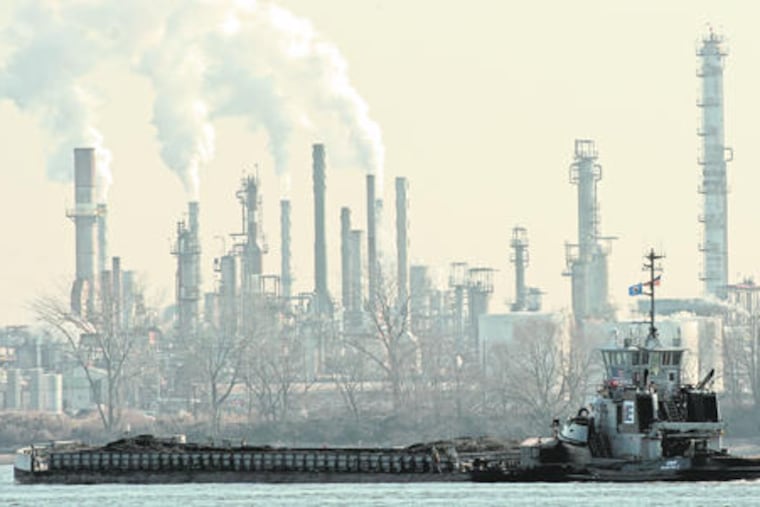On the 75th anniversary of the Donora smog disaster, Pennsylvania’s air quality is still terrible
Breathing clean and healthy air should be a right and not a privilege.

As long as society’s been burning fossil fuels to get energy and heat, we’ve been victim to an invisible pollutant that wreaks havoc on our health and environment. Soot — officially known as fine particulate matter — is a dangerous and deadly man-made air pollutant that comes from burning oil, gas, and coal. Currently, the U.S. Environmental Protection Agency (EPA) is in the process of updating the levels at which soot is allowed to be in the air. Implementing the strongest possible science-based standards will protect the health of all Pennsylvanians and our environment.
Pennsylvanians are no strangers to polluted air. This year marks the 75th anniversary of the historic Donora smog disaster near Pittsburgh. It was one of the worst air pollution disasters in U.S. history — 20 people died — sparking a movement to reduce air pollution and ensure clean air to breathe for all Americans. Sadly, millions of Pennsylvanians still face elevated air pollution levels. In fact, according to the American Lung Association, Pittsburgh ranks as the 14th worst metropolitan area in the nation for year-round particle pollution, and Philadelphia ranks 18th worst in the nation. All told, more than 1.7 million Pennsylvanians live in counties receiving an “F” grade for particle pollution.
Soot comes from power plants, vehicle tailpipes, and other industrial sources that run on dirty fossil fuels. Soot negatively impacts the health of citizens across Pennsylvania and puts our natural environment at risk. Burning fossil fuels is the source of soot pollution and is also the main driver of climate change. In addition to contributing to climate change, soot also causes haze and acid rain, which has detrimental effects on our lakes, streams, and other ecosystems.
Soot is finer than natural air pollutants like dust and pollen, and as such is able to penetrate deeper into human lung tissue. Soot exposure has been shown to increase mortality rates, hospitalizations, and emergency room visits. These dangers are more prominent for children, seniors, and those with chronic illnesses, particularly asthma. More than 20% of children in both Allegheny and Philadelphia Counties have asthma, more than twice the national rate.
In addition to asthma exacerbation and other breathing issues, soot is also linked to grave illnesses and health risks including heart disease, diseases like Parkinson’s and dementia, and issues related to pregnancy and childbirth. Harvard researchers estimated that Pennsylvania has the highest rates of premature deaths caused by soot pollution in the country.
Sadly, America’s air quality standards for soot pollution haven’t been updated in over a decade. That’s why it’s so important that the EPA is taking steps to revise them now. Currently, the EPA is proposing a new standard that would reduce allowable levels of soot pollution in our air by about 20%. Yet, public health data show that the EPA can and should go even further with its standards. By lowering the current standard by 33%, the EPA could save four times as many lives, or nearly 20,000 lives each year.
Over the course of the EPA’s official public comment period, tens of thousands of Pennsylvanians added their names in support of stronger soot protections. Breathing clean and healthy air should be a right and not a privilege. Ensuring that the EPA’s newly proposed public health protections are strengthened and approved will be a big step toward helping Pennsylvanians and all Americans breathe more easily.
Ellie Kerns is the climate and clean energy associate with PennEnvironment, a statewide environmental advocacy nonprofit.